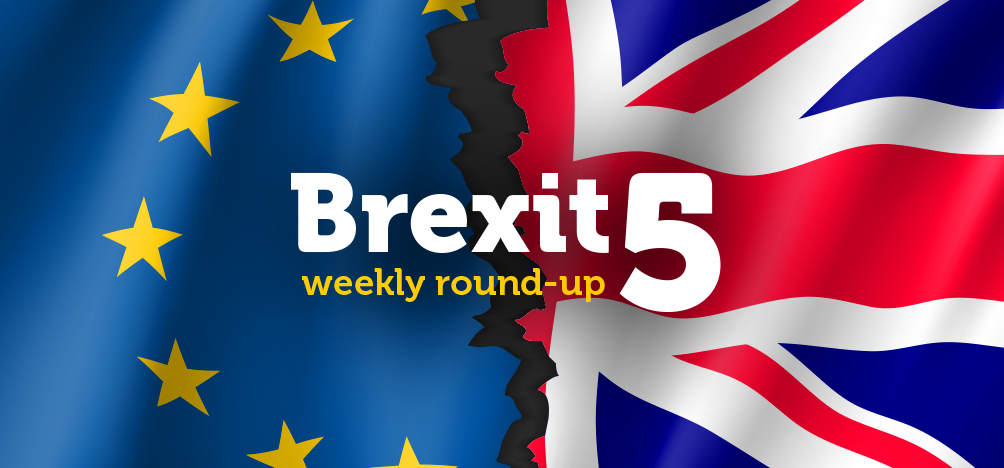Political backstabbing
With more people entering the Tory leadership race than houses which fought over the Iron Throne on HBO’s Game of Thrones, are we set for another season full of twists and turns, where backstabbing comes hand-in-hand with political alliances? Unfortunately, I am not talking about a new season of Game of Thrones, that is done for good in stark contrast to the Tory leadership race or Brexit for that matter.
There are currently 12 MPs that have announced they are standing, including Boris Johnson, Dominic Raab, Jeremy Hunt, Rory Stewart, Esther McVey, Matt Hancock, Andrea Leadsom, Michael Gove, Sajid Javid, Kit Malthouse, James Cleverly and Mark Harper. For many members of the public their first reaction to most of that list will be: “who?”.
However, that does not matter, for the next leader of the Conservative Party and Prime Minister will be decided by less than 0.25% of the country’s population. The Conservative Party members will get the final say over who becomes the next leader and this is only 160,000 people out of the UK’s 66.04 million inhabitants. With over a third of these members aged over 66, once again the views of young people are being under-represented in a decision that will dictate the direction of UK for years to come.
A mini referendum
To some observers, the European Elections in the UK were an insight into what a possible further referendum on Brexit may look like. Whilst the Brexit Party emerged as the clear victors with over 31% of the vote, remain leaning parties took a larger share of the vote so if this election were reflected in a referendum then Brexit could be reversed.
Luckily for Brexiteers, this was not another referendum and whilst the turnout across Europe was over 50% for the first time in 20 years, the figure was significantly lower in the UK at 37%. This is an improvement from the lowly figures of the past, but it is not enough to give a true reflection on what the outcome of a people’s vote would look like where turnout would most likely hit over 70% again.
The end of an era
Others hope that this election marks the end of the two-party system that has endlessly characterised UK politics. The Brexit Party, the Liberal Democrats and the Green Party occupied three out of the top four spots in this election with the Conservatives stumbling to an embarrassing fifth. Does the domination by these third parties truly represent the end of the two-party era?
We cannot place too much emphasis on a European Election within the UK as third parties have historically faired far better in these elections than general elections. However, the resurgence of the Liberal Democrats does show that there is an institutional party that can offer a real alternative to the Conservatives and Labour going forward. And if there were to be a general election before Brexit is confirmed then there should be no doubt that the Brexit Party could exceed expectations again.
Will it ever happen?
In the wake of Theresa May’s resignation, there was mounting concern that by the time a new Prime Minister is in place following the summer parliamentary recess, it will be too late for any new leader to make any significant changes that would see Brexit through Parliament by October 31st. Even more concerning to Brexiteers is the risk that a general election might yet prove necessary before October to give the government legitimacy.
The public may have reservations about the new Prime Minister, but the government will be under no obligation to call a general election. It would be foolish for the Conservatives to do so as the European Election results could easily be reflected, and a bloodbath would await the party. Once the Tories have delivered Brexit, only then can they enter a general election, and even then, it’s impossible to predict how popular they and their version of Brexit would be.
Instead the new Prime Minister must quickly go back to Brussels, as the EU leaders will need to give a fair hearing to the leader. This should be followed by individual meetings in Berlin and Paris, the window of success to make any substantial changes is very short. The EU is not going to get rid of the backstop, so it is pointless to attempt a negotiation on this front and lose what little political leverage the UK still holds.
Business warns future leader
In light of the Tory leadership race and fears that a Brexiteer victor will immediately take the UK out of the EU without a deal (which remains within the PM’s powers), the business community has warned any future leader that a no deal will severely damage businesses. Carolyn Fairburn, the Director General of the Confederation of British Industry which speaks for 190,000 businesses and one-third of the private sector-employed workforce, wrote a letter to all the Conservative leadership candidates on the importance of leaving with a deal.
The organisation which campaigned for remain in the referendum insists that the UK is not ready for £20bn of increased customs costs or tariffs rising overnight with “150,000 businesses with no systems in place to do deal with this.” It is a bleak picture and a strong message to Tory candidates, whether any of them will take any notice of this is an entirely different question. As it stands failing to deliver Brexit and losing more of their party faithful to the Brexit Party is a greater risk to Conservative MPs as the October deadline approaches.
The Whitehouse team are experts in the potential impact of Brexit, providing political consultancy and public affairs advice to a wide range of clients, not only in the United Kingdom, but also across the member states of the European Union. More information about our Brexit experience can be found here, or, if you have any questions, please contact our Chair, Chris Whitehouse, at chris.whitehouse@whitehousecomms.com.
